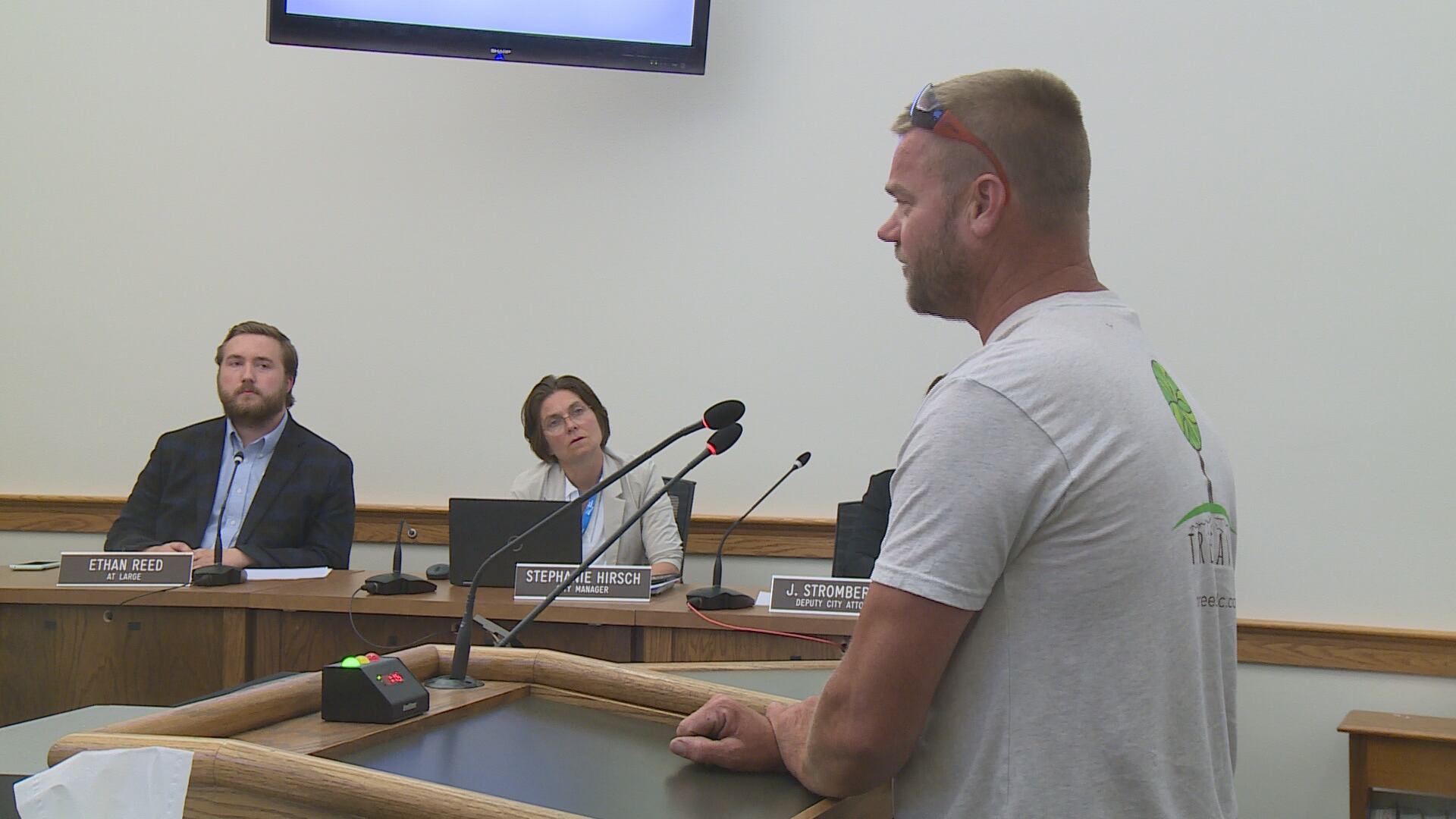Community Voices Shape Debate Over Century Code Updates
Residents of Eau Claire gathered for a public hearing at the city council meeting on Monday, offering their perspectives on proposed changes to the Century Code. These updates are expected to be voted on this week, and one of the most contentious issues discussed was the proposed tree ordinance.
The tree ordinance has sparked significant debate among residents, with many expressing concerns about its potential impact on homeowners. Sharon Hildebrand, a local resident, urged the council to consider all possible options before making any decisions. “I’m asking you to remember that once you create such huge changes, you cannot easily just walk them back,” she said during the hearing.
The proposed tree ordinance would allow the city to impose fines on homeowners for every inch of tree that needs to be replaced. This idea has raised questions about fairness and practicality. Larry Mboga, a member of the City Council, questioned the reasoning behind such penalties. “Why should we, the city council, impose a fine on someone if they want to cut their tree? Why should we charge $100, $200, $300, or even $400?” he asked.
Jackie Berg, a consultant from Houseal Lavigne, responded to Mboga’s concerns. She explained that the fee would only apply if a homeowner is unable to preserve or replant a tree either on or off-site. “The fee in question would not come into play if the tree is small, dead, or dying,” she clarified.
Luke Mahal, owner of Tree Savvy LLC, shared his own concerns about how the new rules could affect his business. “Our volume of tree removal is probably 40-50% of our income, so we’re talking about a lot of trees. If we need more permission from the Forestry Department to remove trees, we’ll need more staff,” he said.
Beyond the financial implications, there are also concerns about the standards for replanting trees. Berg emphasized that proper aftercare is essential for the survival of newly planted trees. “There are different standards for replanting and aftercare. If you want these trees to thrive, you’ll have to invest time and money into them afterward,” she added.
Another issue raised by developers is the broader impact of the proposed code changes. Paul Holzinger, a member of CDPG Developers, expressed worry about how these regulations might affect real-world applications. “The practical application of the code can lead to unintended consequences. Minimum landscaping standards, multi-building development requirements, garage projections limitations, and other elements add significant costs to housing,” he said.
Susan Miller, chair of the Third Ward Neighborhood Association, highlighted the importance of preserving older homes. “Keeping older houses helps avoid future problems. Preserving them is carbon neutral, as it keeps them out of landfills and reduces the need for new construction,” she explained. “Using existing structures also helps reduce the demand for new buildings, whether for renting or selling.”
As the city council prepares to vote on the Century Code updates, the decision will have lasting effects on both homeowners and the management of trees in the community. The hearing provided a platform for residents to voice their concerns, ensuring that their perspectives are considered as the council makes its final decision.






